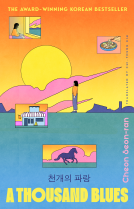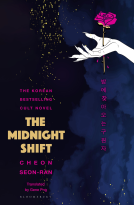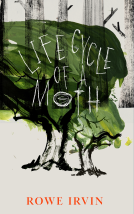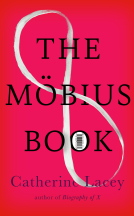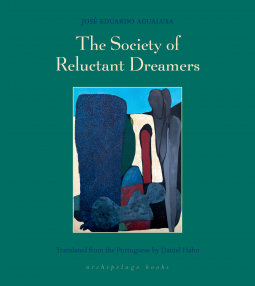
The Society of Reluctant Dreamers
by Jose Eduardo Agualusa
This title was previously available on NetGalley and is now archived.
Send NetGalley books directly to your Kindle or Kindle app
1
To read on a Kindle or Kindle app, please add kindle@netgalley.com as an approved email address to receive files in your Amazon account. Click here for step-by-step instructions.
2
Also find your Kindle email address within your Amazon account, and enter it here.
Pub Date 24 Mar 2020 | Archive Date 1 Jan 2020
Talking about this book? Use #TheSocietyofReluctantDreamers #NetGalley. More hashtag tips!
Description
When Daniel Benchimol—consummate dreamer—uncovers the photographed reveries of a famous Mozambican artist, Moira, his fascination quickly develops to obsession as the sight lines between reality and dreams get harder to bring into focus
Daniel Benchimol spends his dreaming hours interviewing revolutionaries and writers. In this treacherous sleepscape, we find the Angolan anti-communist Jonas Savimbi, Muammar Gaddafi, hunched and hiding in a gutter, and Julio Cortázar as a great billowing tree, speaking to Daniel through an alphabet of clouds. He dreams wild dreams of people he’s never met, squinting at them as if submerged in the hazy waters of southern Angola.
When Daniel finds a camera on the beach, he becomes obsessed with the woman in the photos. Moira is a Mozambican artist with a similar preoccupation with her subconscious life – she stages her dreams in her artwork. The two meet, and together they explore the cloudy edges of their nightly visions, tugging at the fringed hem of the real. The Society of Reluctant Dreamers is a delicately crafted glimpse into the aftermath of Angolan independence, a postcard sent to prod the illusion of peace and freedom.
Advance Praise
Winner of the 2019 Angolan National Prize for Culture and Arts • "Cross J.M. Coetzee with Gabriel García Márquez and you've got José Eduardo Agualusa, Portugal's next candidate for the Nobel Prize." - Alan Kaufman, author of Matches • "Without doubt one of the most important Portuguese-language writers of his generation." - António Lobo Antunes Praise for A General Theory of Oblivion: • "Hahn is one of our most experienced translators. Such experience shows in tiny interventions to guide the English reader through the chaos of the Angolan battlefield ... and in his taking confident ownership of certain descriptive passages, ensuring the music of the original is conveyed along with the meaning... a timely homage to the prize of Angolan independence." -- The Independent • "Agualusa's novel is a powerful examination of personal recollection and public upheaval, and a penetrating study of isolation and the cost of freedom." -- Malcolm Forbes, The National • "Like Portuguese writer Fernando Pessoa and Argentine Jorge Luis Borges, Portuguese-Angolan writer José Eduardo Agualusa is a literary trickster who dazzles with his artificial fictional creations.... Agualusa is a master of varied genre structure, and he has great fun shifting from spy novel to pastoral narrative to interior reflection, but his heart is deeply invested in his characters, and each individual's story burns itself into the reader to make us reconsider our capacity for empathy and understanding.... Profoundly satisfying." -- David Wiley, Minneapolis Star Tribune for A General Theory of Oblivion • "Agualusa's writing is a delight throughout, as he opens up the world of Portuguese-speaking Africa to the English-speaking community - and what a world it is." -- The Scotsman • "'A man with a good story is practically a king.' If this is true, then Agualusa can count himself among the continent's new royals." -- Angel Gurría-Quintana, The Financial Times • "A master storyteller...It's a tribute to Agualusa's storytelling that the bittersweet redemption found by his characters feels authentic; he and they have earned it." -- Washington Independent Review of Books * * * *
Available Editions
| EDITION | Other Format |
| ISBN | 9781939810489 |
| PRICE | US$18.00 (USD) |
| PAGES | 300 |
Featured Reviews
As the title suggests, this is a book about dreams and dreamers. Set in present day Angola, it deals with the country’s difficult past while being hopeful about the younger generation bringing in a better future. Although I found its surrealism a little bit messy at times, it was also compelling, unique and a very good read.
After a difficult day in court divorcing his wife, fifty-something journalist Daniel Benchimol goes to a beach hotel for a long swim. While in the water, he finds a waterproof camera and dreamlike photographs featuring Cotton-Candy-Haired-Woman who has appeared in his own dreams. She turns out to be a Mozambican artist Moira who stages her own dreams in her art and after the two meet, Moira goes to Brazil to work with Helio, a neuroscientist who records people’s dreams. Moira helps him turn these recordings into films.
Back in Angola, Daniel befriends Hossi, owner of the beach hotel who was once an interrogator for revolutionary guerrillas. After a near death experience, Hossi no longer dreams but has appeared in other people’s dreams as the man in a purple coat. Daniel, like many Angolans who have lived through the many political upheavals is apathetic about politics and current affairs. This changes after his daughter Karanguiri, a student activist, stages a protest with a group of friends that ignites the country, as if waking it up after a long sleep.
This is my first book by Jose Edoardo Agualusa, only after I finished reading it did I learn that he also wrote The General Theory of Oblivion, which sounded very intriguing but I never got around to reading. I will correct this soon. I also learned that Agualusa based the novel on real events – Karanguiri’s protest was inspired by a real group of protesters, for example and reading the book, I couldn’t help thinking that there were elements of auto-fiction here too.
I liked a lot of Agualusa’s ideas about the power of dreams and dreaming; being afraid of dreams because they expose our most intimate thoughts; inability to delineate dreams from reality; dreams turning into reality, which can be taken as a metaphor of dreaming about a better future for Angola, expressed by Karanguiri’s activisim. And despite the ending perhaps being too idealistic and some of the ideas above not being fully explored, I still think The Society of Reluctant Dreamers a really good book, one that I would recommend.
My thanks to Archipelago and Netgalley for the opportunity to read and review The Society of Reluctant Dreamers.
 Jaidee D, Reviewer
Jaidee D, Reviewer
5 "imperfect, jagged, deep, revelatory and revolutionary" stars !!!
Thank you to Netgalley, the author and translator as well as Archipelago Books. This was originally published in 2017 in Portuguese and won the 2019 Angolan Prize for Culture and Arts. This English translation was published in March 2020. I am providing my honest review.
Let's move away from Europe (both West and East), let's move away from America (both white and black). Let us immerse ourselves in Angola, Cuba and Brazil. Light skinned African and very dark Portuguese. Colonials overthrown by dictatorships just as cruel. Wealth stolen, money disdained, the people are rising.
Dreams, premonitory. Dreams, mystical and healing. Dreams, revolutionary.
Male friendship, ex-wives, new lovers, past flames. The ocean and journalism. Poetry and brave daughters. Memories reconfigured. Art from dreams. Dreams from art. Mass protest, pacifism, hunger strikes, taxi rides.
I swirled and swayed inside this novel. I understood some but knew so much more. My cells quivered and my soul lifted.
Bravery and courage is needed for a better world.
A book so foreign yet strangely familiar. Unsettling but utterly satisfying.




